Eileen Atkins interview: I realised I really didn't like my mother
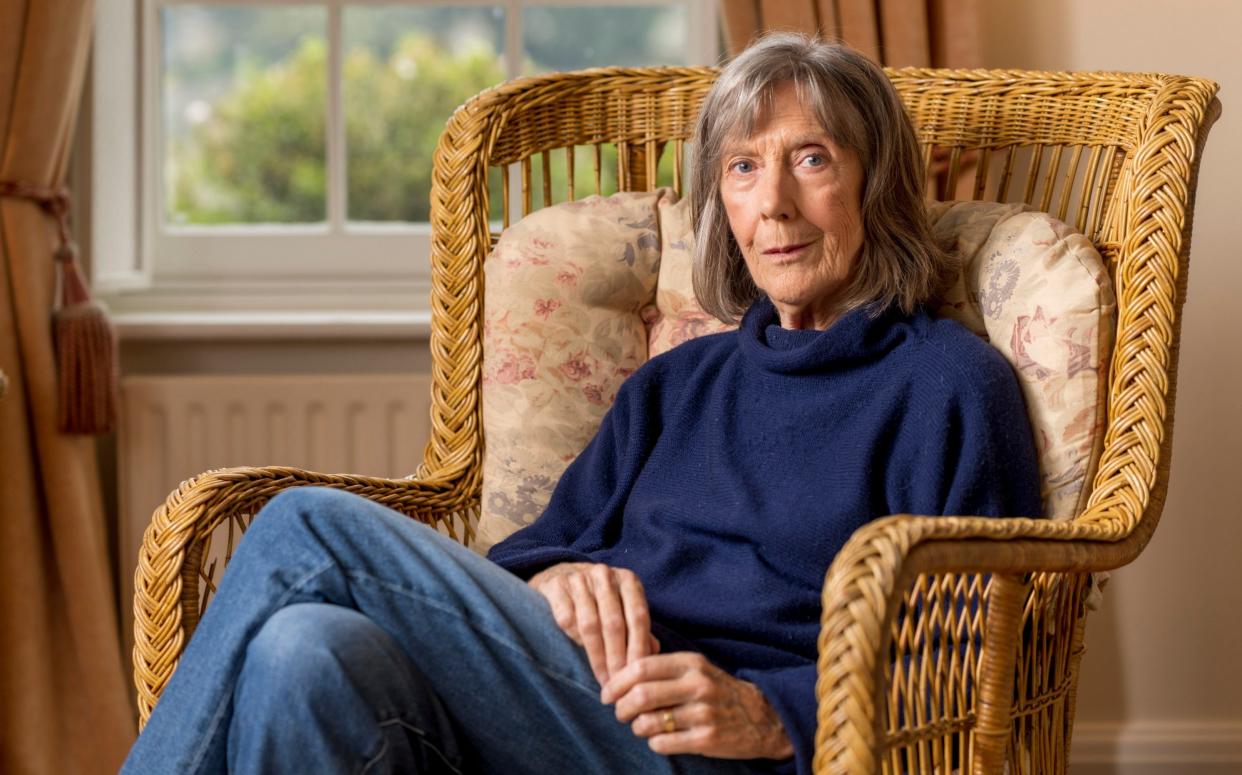
‘Let’s face it,” Eileen Atkins says. “My profession is stuffed with people who should have never taken it up. One gets asked all the time by young people, ‘Do you think I should be an actress?’ – I’m still saying actress – and I want to say immediately, ‘No, because you’re asking me.’ They should come and say ‘I’m going to be an actress.’”
Which, of course, is what Atkins herself did.
We are sitting in the cosy cottage on the banks of the Thames in west London where Atkins lives. She moved here 45 years ago with her husband, the film producer Bill Shepherd. He died in 2016. So now there is just Dame Eileen, and her two cats, in a welcoming room with plump sofas, shelves lined with books on the theatre, and, dominating one wall, a haunting naive painting by Mary Seddon of an owl and a moon.
“I walk in here in the morning,” she says, moving to the door and acting walking in the morning, “and I immediately feel cheerful.”
She is 87, slim and quick, dressed in a sweater, slacks and trainers. A much younger friend tells Atkins that she is the most youthful person she knows: interested in everything and always ready to laugh.
She has written a memoir Will She Do? (serialised in The Daily Telegraph tomorrow), charting her life and her career, beginning at the age of six as “Baby Eileen” – Tottenham’s answer to Shirley Temple – tap-dancing and singing in working men’s clubs for 15 bob a night, up to the age of 32, when she first went to Broadway, to star as Childie, the lover of a tough lesbian radio actress, in the Frank Marcus play The Killing of Sister George.
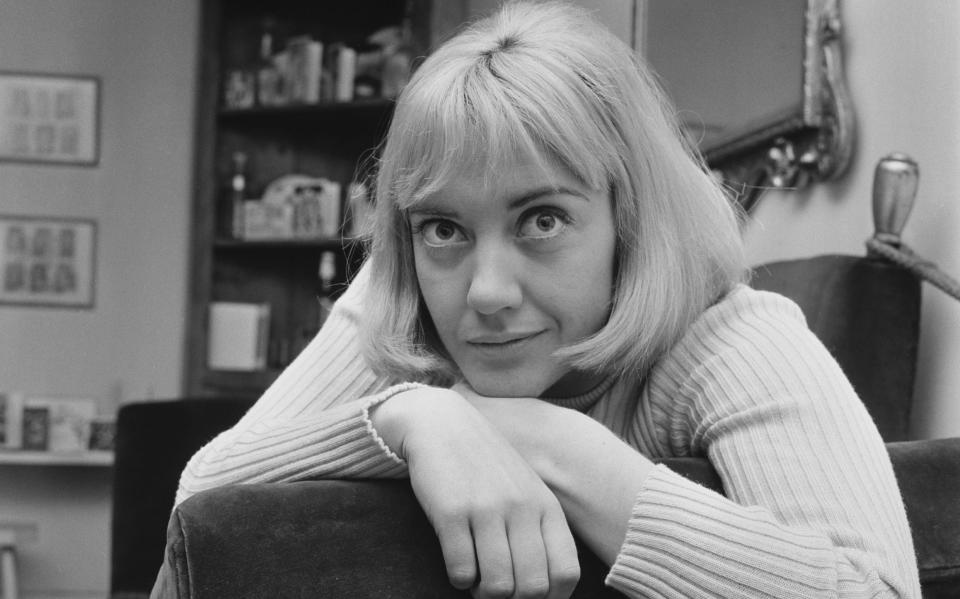
Barely a mention of her distinguished career as one of Britain’s illustrious theatrical dames, devising Upstairs, Downstairs and The House of Eliott with her friend Jean Marsh, and her later excursion into television with Doc Martin, Cranford and The Crown. So half a memoir then.
She finishes in 1966, she says, “because I was successful from then on. [She received the first of her four Tony Award nominations for The Killing of Sister George.] After that, one is writing, ‘And then I played so-and-so and I didn’t get on with so-and-so’, and I think that’s boring.”
And boring, Will She Do? is most certainly not. It is by far the most entertaining book I have read this year – candid, revealing and shot through with a wit so dry it’s almost parched, illuminating on the years she spent slogging away in repertory companies before finding success, and most fascinating of all on that most British of preoccupations – class.
Her father, Arthur, was a meter reader for the electricity board, who had once worked as under-chauffeur to the Portuguese ambassador. Her mother, Annie, was a dressmaker and erstwhile barmaid. There was a brother, Ronald, and a half-sister, and a grandmother living in. “Annie led the roost and Arthur clucked along,” she writes.
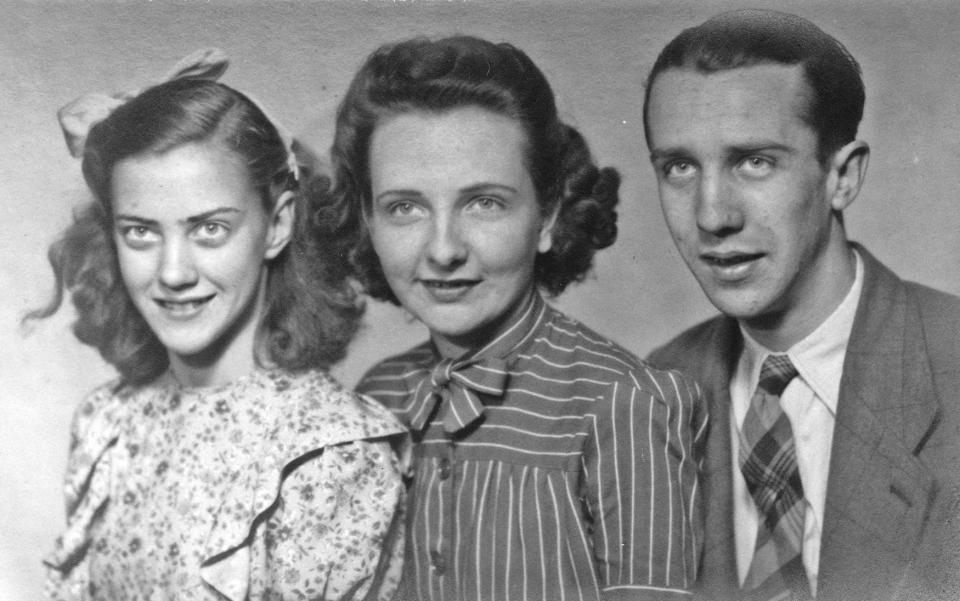
The book is brilliant on the signifiers and nuances of class in the 1940s and 1950s; pinnies, lino on the floor, Amami waves, and what constituted a square meal in 1942.
“I remember writing out the menu for a week - [Wednesday: Spam and boiled potatoes] - and thinking, ‘You’ve thoroughly enjoyed remembering those terrible meals, but who is going to be interested?’ I said to my editor, ‘Does anyone really want to know this?’ and she said, ‘Yes, because you’re history.’”
And her editor was right.
Her father, she says – “a very good-natured man until he lost his uniform, and very unhappy after that” – would have been happy to have been in service all his life. “He saw nothing wrong with the world as it was then, but my mother did.” She thought service was “demeaning”, her radar always alert to anything “common”. They were the only family on the street to vote Conservative, because “she thought it put us one up”.
Writing the book, Atkins found out that the council house where she grew up had been sold last year for £480,000. “Ronald said, ‘I can’t believe I’ve actually gone down in the world’, because his house in Malvern isn’t worth £480,000.” She laughs.
She was never tempted to go back. Michael Caine, I say, another working-class actor made good, once made a sentimental journey to his childhood home in Bermondsey and bumped into Charlie Chaplin, who had come from the same manor, doing the same thing.
She raises an eyebrow. Her mother, she says – who clearly never thought Atkins would do – “used to torture me with Michael Caine,” chastising her for upgrading her accent when she became an actress for the RSC.
“She’d say, ‘Well, Michael Caine still talks the way he did, and he’s done very well.’ I’d say, so pompously, ‘He is not a classical actor.’ And she’d say, ‘He’s a very well-paid actor…’
“Michael Caine…” Atkins laughs. “I wanted to kill him some days.”
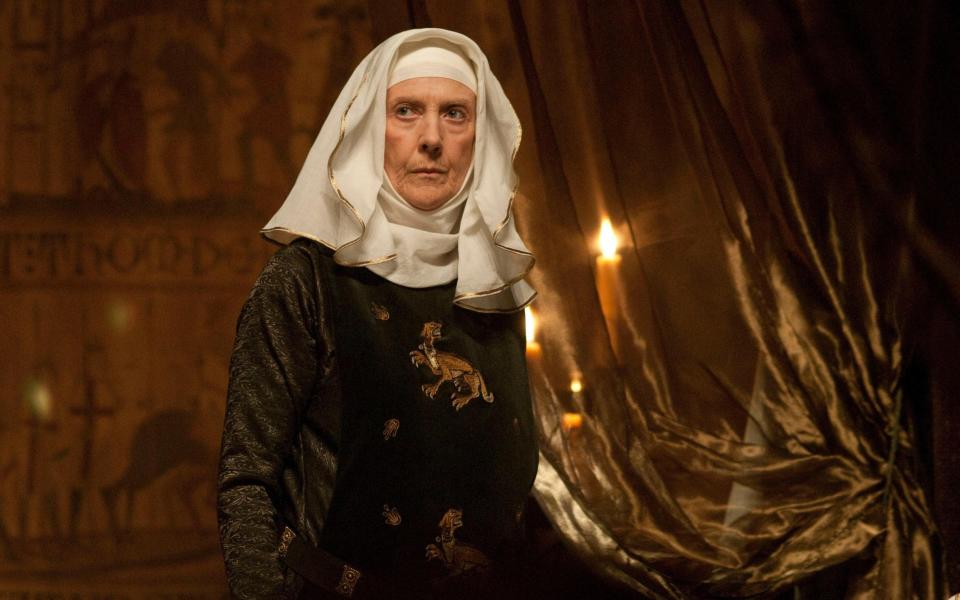
Her mother showed no interest in her career, and it was years before her parents even came to see her perform, playing in Twelfth Night at the Old Vic. “I got them tickets and sent a car. And backstage they were just tortured with embarrassment. My father always looking at his watch – ‘We’re keeping that bloke waiting’, because he’d been a chauffeur himself. And [my mother] didn’t understand the play at all. She didn’t understand a single play I did. She wasn’t even pleased when I had success with The Killing of Sister George.” She purses her lips and mimics her mother’s disapproval. “She did not like the subject matter.”
Here’s the brutal truth: while she loved her father “immediately”, she felt very differently about her mother: her pushiness, her petty-mindedness, her caring what the neighbours thought.
“Of course, when I was young she was the centre of my world. But later I looked back and thought, I really don’t like that woman.
“I think that’s why I became exceptionally close to Alec Guinness [who had his own mother problems; he was 14 when his mother finally revealed the true identity of his father]. He said, ‘You’re the first person I’ve ever heard say that they didn’t love their mother.’”
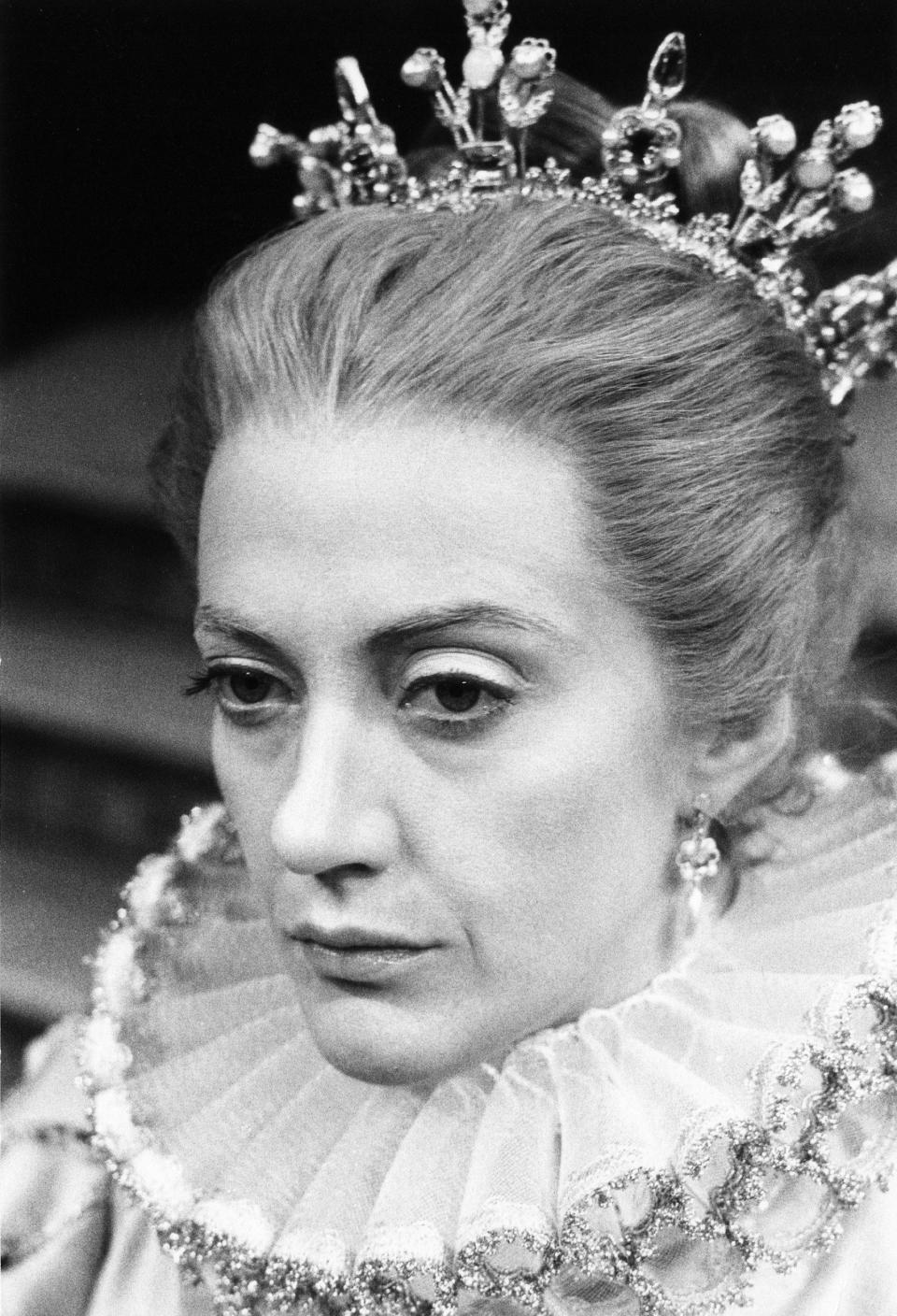
She describes a memory from her 30s, of visiting her mother and having “a really... boring time – ‘Yes, the new curtains are lovely…’” and earnestly wishing she had an interesting mother whom she loved very much to go and visit. “And I walked out and thought, ‘I am never, ever going to give anyone the feeling that their duty is such that they have to keep seeing me. I will never do that to anyone.”
So she has kept people at arm’s length?
“Oh no! I’m very social.” She has no children, but an abundance of good friends. “But it’s like a continuous beat... Don’t expect. Don’t let anyone think ‘duty’. I don’t want to be a burden to anybody; that is beaten into my being.”
She is, one notices, bracingly honest and funny about herself, and very self-critical. She can’t bear sentimentality, fake humility or emotional incontinence. Growing up, nobody in the family ever said: “I love you.”
“But nobody in Tottenham said it. You only knew your mother loved you if you got clipped round the ear ’ole if you nearly got killed.”
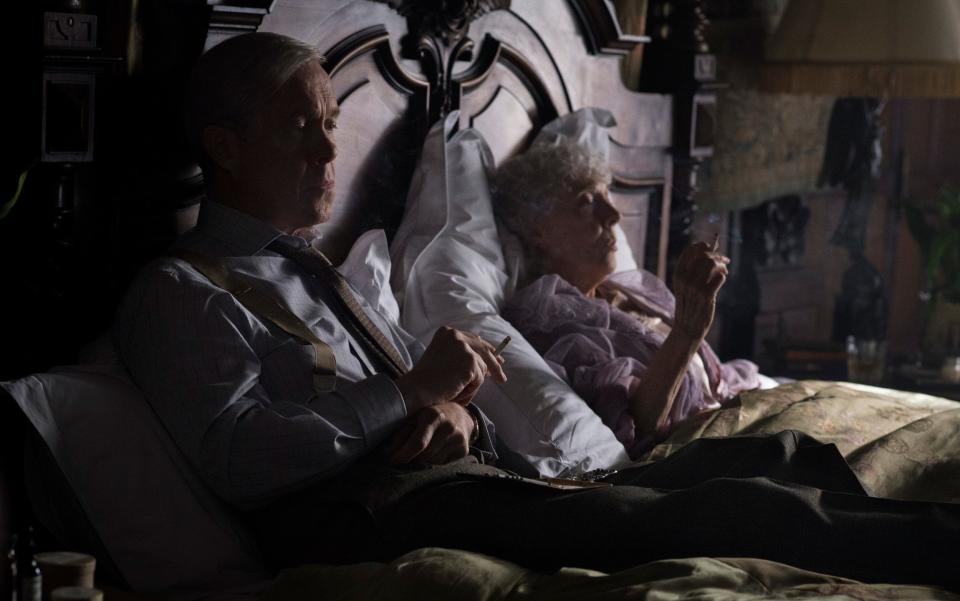
She ponders on this. “I think I’m not a nice person exactly,” she says. “All you care about is acting, and you don’t do anything... good. I vaguely try not to be cruel in my everyday life, but that’s about it. But writing this book made me absolutely sure that I had at least made the right decision, to be an actress and give everything to that. I’ve done lots of wrong things in my life – but that was absolutely the right thing for me.”
The subtitle of Will She Do? is “Act one of a life on the stage.” “And of course, everyone is saying, ‘Is there going to be an act two?’ And I say, ‘I’m 87 now. I don’t really think there’s going to be a second act.’”
It’s not that she regards herself as retired, but if she’s honest with herself she feels she has almost lost her talent, “or whatever you call it – the gift”.
Before Covid she was doing a run-through for a new play, 4000 Miles at the Old Vic, with Timothée Chalamet. “And I only dried four or five times, and I thought, ‘You’ll just about make it to the first night.’ But I’m not sure how much I can learn now.” The play is now scheduled to open next year. “But I do think, ‘If you can’t be the best you must stop.’”
Her husband died after a long illness, on the night of the Brexit vote. “I missed his death because I’d stayed up the night before to listen to the result, then went to bed and put the duvet over my head and slept through in the morning and I wasn’t in the hospital…”
She falls into silence.
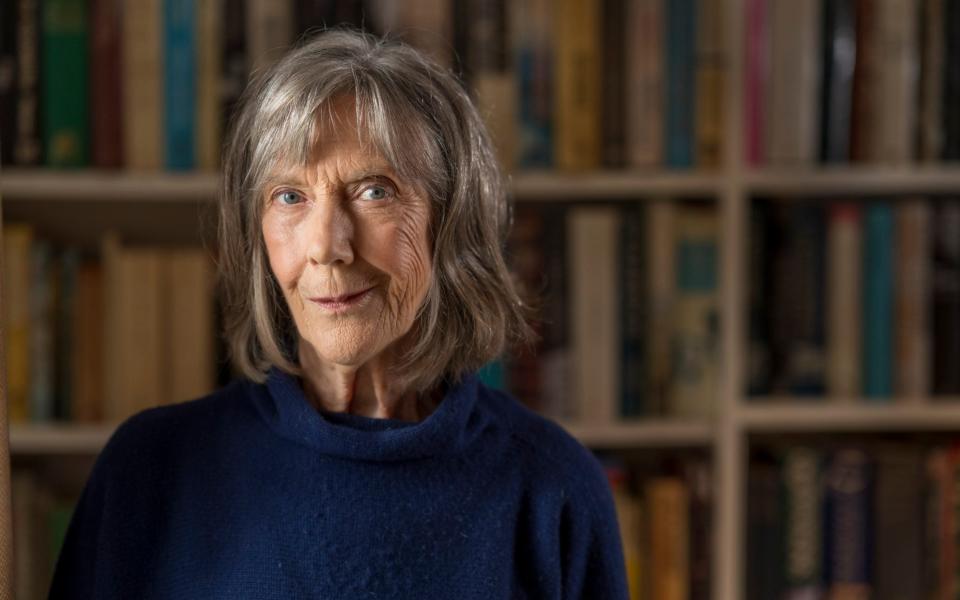
“It’s hard for anybody to lose a partner, it really is. But I’m somebody who’s always known I can be by myself. Whenever I feel a bit sorry for myself I say, ‘Come on – there were times when you thought, thank God I’ve got some filming away from Bill and I can be on my own. So you’re just having a long time on your own, that’s all.’ But it would be nicer to have him…”
She has always balked at the word “happy”. “I wish we didn’t use it all the time, because happiness is just a surprise. Sometimes you just suddenly think, ‘Jesus, I’m happy.’”
She remembers a day in Big Sur in California, “with somebody who was a passing affair – we both knew it was just for then”, the two of them with some others, out walking, “and I suddenly thought, ‘I’m violently happy!’ Not particularly for that man, or for Big Sur, or anything. It just suddenly overtakes you. You can’t say, ‘If I do this or that I’ll be happy.’ You just have to say, ‘I’m getting on with life.’”
And the best one can hope for is contentment?
“Absolutely! People don’t use that word enough. I think most people I know wouldn’t think I was content, because I’m always raging on about something. But I’m content raging on about something.” She smiles. “Yes, I would consider myself content. Very.”
Will She Do? by Eileen Atkins (Virago, £18.99) is out on Oct 7. Read an exclusive extract in The Daily Telegraph tomorrow
